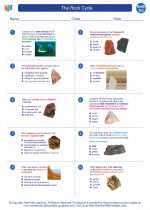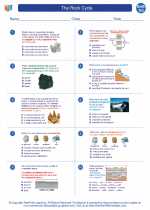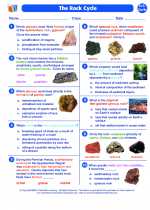Organic Matter
Organic matter refers to the material that is derived from living organisms, such as plants and animals. It is made up of molecules that contain carbon, hydrogen, and oxygen. Organic matter is an essential component of the Earth's ecosystems and plays a crucial role in the carbon and nutrient cycles.
Composition of Organic Matter
Organic matter is composed of a variety of complex molecules, including carbohydrates, lipids, proteins, and nucleic acids. These molecules are formed through the processes of photosynthesis in plants and through the consumption of organic material by animals. When organisms die, their remains contribute to the organic matter in the environment.
Importance of Organic Matter
Organic matter is important for several reasons:
- It serves as a source of energy for organisms through the process of decomposition.
- It contributes to soil fertility by providing essential nutrients for plant growth.
- It plays a role in the carbon cycle, as organic matter stores carbon and helps regulate the Earth's climate.
- It supports biodiversity by providing habitats and food sources for a wide range of organisms.
Study Guide
When studying organic matter, it is important to understand the following key concepts:
- The composition of organic matter, including the types of molecules it contains and how they are formed.
- The role of organic matter in ecosystems, including its importance for energy flow, nutrient cycling, and biodiversity.
- The processes involved in the decomposition of organic matter, and the factors that influence the rate of decomposition.
- The impact of human activities on organic matter, such as deforestation, agriculture, and climate change.
Additionally, it is valuable to explore real-world examples of organic matter in different ecosystems, as well as its significance for environmental sustainability and conservation efforts.
By mastering these concepts, students can gain a comprehensive understanding of the role and significance of organic matter in Earth's systems.
.◂Earth Science Worksheets and Study Guides High School. The Rock Cycle

 Worksheet/Answer key
Worksheet/Answer key
 Worksheet/Answer key
Worksheet/Answer key
 Worksheet/Answer key
Worksheet/Answer key
 Vocabulary/Answer key
Vocabulary/Answer key
 Vocabulary/Answer key
Vocabulary/Answer key
 Vocabulary/Answer key
Vocabulary/Answer key
